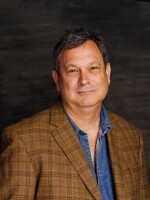During his last State of the Union address, President Barack Obama proposed raising the national minimum wage to nine dollars an hour and permanently indexing it to the cost of living.
Supporters say it's a way to redistribute income from thriving corporations to workers. Others say it’s a surefire way to kill jobs.
With the most minimum wage workers in the union, Texas would be the state most impacted if the wage increase becomes law.
According to the Bureau of Labor Statistics – 1.7 million Americans earned the federal minimum wage in 2011. 61% of them were female. A quarter of them worked in the food industry and another quarter worked in retail. And 40% are black or Latino.
Irasema Cavazos – is a San Antonio home health care worker who makes $8.50/hour, more than the $7.25 minimum wage:
"We’re living under such harsh circumstances. Those people that work for the minimum wage and such low wages… in essence it’s like slavery, because these are poverty wages. And no matter how hard you work, you’re getting paid poverty wages. You cannot work your way out."
Many economists say a minimum wage increase is a positive boost for the national economy since people like Cavazos would immediately spend their additional income on consumer items and drive up demand and create more jobs.
But some economists, like Professor Jonathan Meer of Texas A&M, argue raising the minimum wage would reduce job creation:
"There are people who just never get on the job ladder. They never get that initial experience."
Also heard on this week's show:
PERRY AT CPAC
Many of the nation’s conservative voices are in Washington D.C. this weekend for the Conservative Political Action Conference (CPAC), including Texas Governor Rick Perry, who was invited to speak. In his remarks, he said the reason the GOP is losing presidential elections is because their nominees, like Senator John McCain and Mitt Romney, were too moderate.
Perry’s appearance at CPAC is refueling talk of another run for the White House.
Also In his speech Perry essentially doubled down on his refusal to expand Medicaid in Texas.
A TWO-PARTY STATE?
Perry’s refusal to expand Medicaid in Texas is seen by some as the spark needed to ignite a Democratic Party grassroots movement in Texas. And the national Democratic Party is looking to accelerate turning Texas into a two-party state with a project called Battleground Texas. At the center of the effort is Jeremy Bird, formerly the national field director for President Barack Obama’s reelection campaign.
IN HARRIS COUNTY, DOES BEING BLACK MAKE YOU MORE LIKELY TO HEAD TO DEATH ROW?
Lawyers for Death Row inmate Duane Buck are seeking a new sentencing for the convicted murderer. Buck’s attorneys say he was unfairly sentenced to death after testimony suggested that he was more likely to be dangerous because he is black.
In addition, new research shows that Harris County’s District Attorney’s Office was three times more likely to seek the death penalty for African Americans – which suggests an institutional racial bias against defendants like Buck.
Christina Swarns, the director of the criminal justice project at the NAACP legal defense fund, speaks to David Martin Davies.
SXSW FILM ADDRESSES THE SEDUCTIVE NATURE OF GUNS
Austin is being swarmed with creative types for the South By Southwest Film Festival.
The winner of the Louis Black Lone Star Award, honoring Texas-based films, was “Loves Her Gun.” The story of a young woman who moves to Texas after being mugged and beaten on a New York street.
She finds peace and a sense of security when she gets a gun. But is it a false sense of security. The film asks a lot of questions about guns – our love for them – our fear of them – and can we find the appropriate balance.
Trieste Kelly Dunn is the star of the film, and she spoke to Texas Public Radio’s Nathan Cone.




